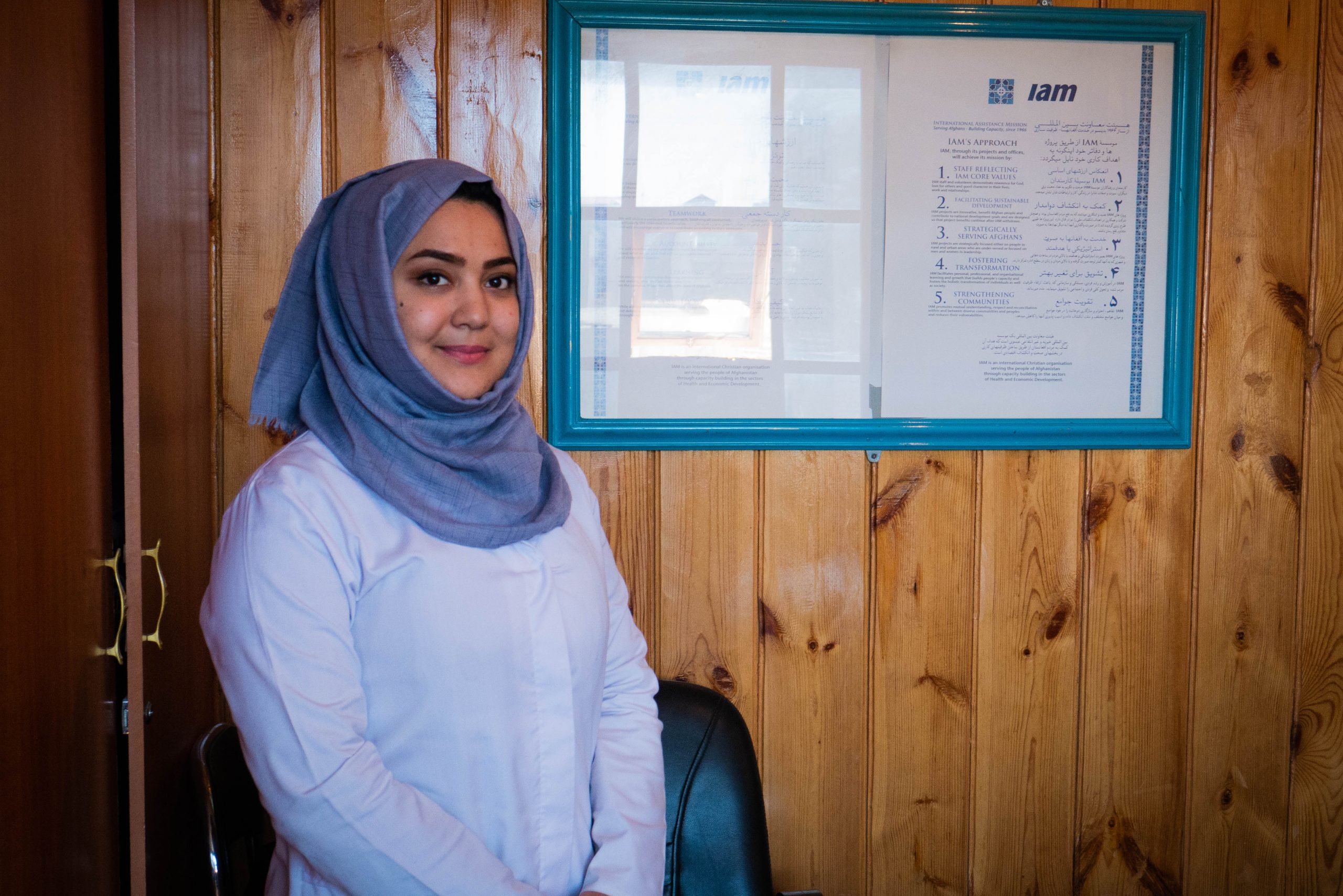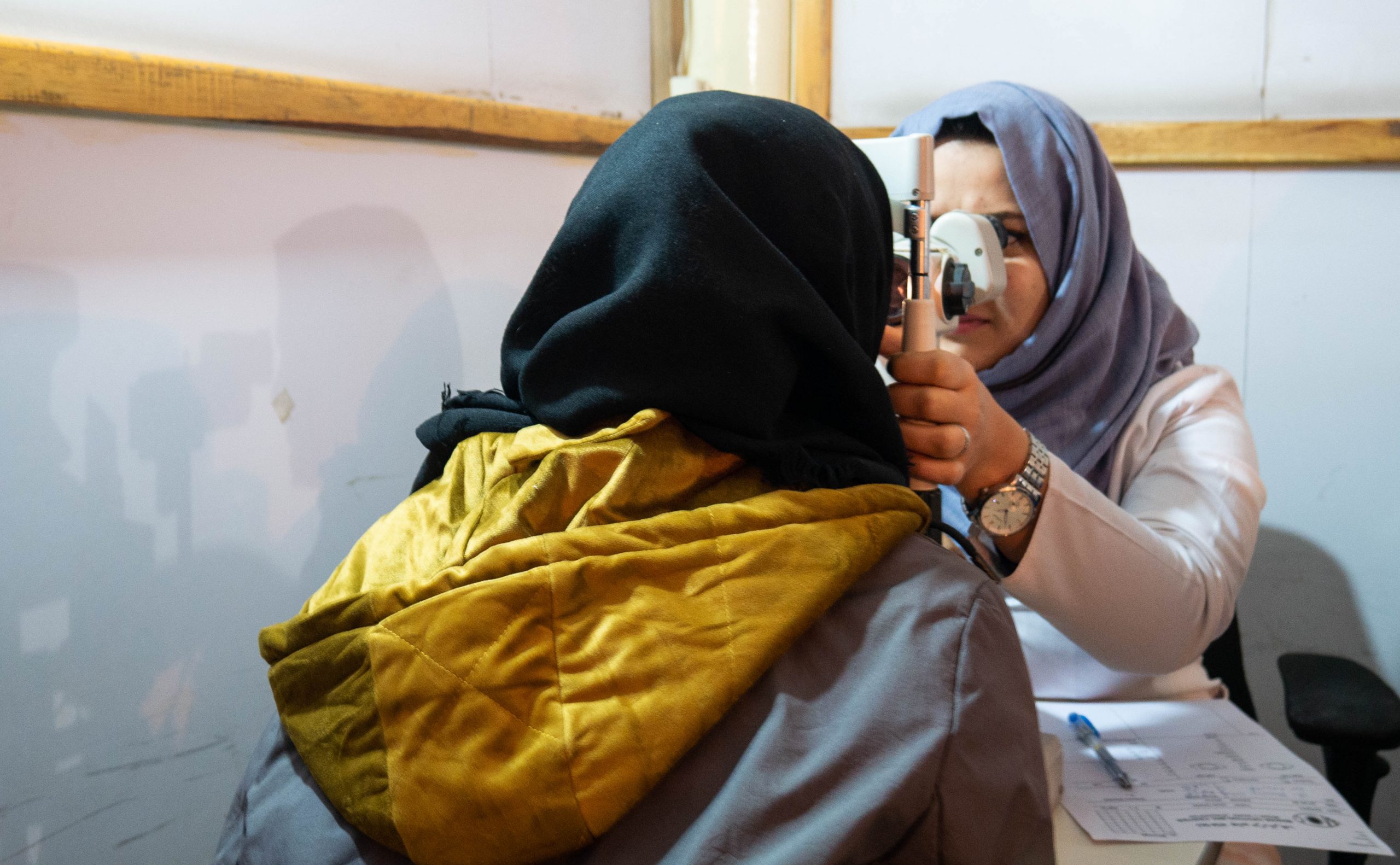“I love my profession. I love working here. There are not many ophthalmologists in Afghanistan, and people need a lot of help. It’s a very important area.”
Nahida is in her mid-20s and is in her second year of IAM’s ophthalmologist residency programme. She is already able to perform some surgeries, and spends most of her days assessing and treating patients at Mazar Ophthalmic Centre (MOC), one of IAM’s referral hospitals.

Nahida who sees 40 patients – although some days it can be as many as 60.
On an average day, Nahida sees 40 patients – although some days it can be as many as 60. Some people come needing glasses, so Nahida examines them and then refers them to the refraction department. Other patients arrive with allergic diseases – such as allergic conjunctivitis – so Nahida makes sure these patients get the right medication. Thankfully, their eyesight itself is not in danger. The third group of patients who come for treatment are those who have lost some or all of their sight because of a disease – such as cataracts or diabetic retinopathy. These patients need further examination and possibly surgery. Many of them arrive after their condition has got very serious, and a lot of their vision has already been lost.
“A lot of people come very late in their disease, so they need help urgently,” Nahida says. “There are many reasons why patients do not come on time. The first is security. The second is that patients must come to Mazar or other cities for eye care services. And the third is that some of them are very poor so they cannot afford to come.”
Nahida has two years left until she finishes her residency and becomes a fully qualified ophthalmologist, but she is already helping the people who are able to make the journey to MOC. She and the three other residents at the hospital are supported by two junior and two senior ophthalmologists, and spend most of their time learning in the clinic and operating theatre. This practical experience is supported by regular morning lectures over the course of the four-year programme, as well as lots of independent study.

“Right now, I am very interested in studying more in order to help our people,” says Nahida, who is excited to begin learning interocular surgeries like cataracts operations next year. “My favourite part of my job is surgery, because the patient quickly sees the result and they are happy. So you feel very happy and proud of yourself, because you know you did a good job.”
MOC is part of IAM’s National Organisation for Ophthalmic Rehabilitation (NOOR). As well as working in Mazar, we have eye hospitals in Kabul and Kandahar, and run a surgical satellite clinic in Dasht-e-Barchi. We also support eight vision centres in underserved areas of the country that are staffed by graduates of our Ophthalmic Technician Training Programme. IAM is committed to making eye care accessible across Afghanistan, and by training people like Nahida, we’re helping to improve provision in the country.
“My advice is this: come to the hospital as soon as possible, because eyesight is very important,” says Nahida, speaking to people who are struggling with their vision. “Before entering this residency programme, I thought there weren’t many infections in the eye. But since coming here, I have seen there are a lot of things to learn. I hope we will get more ophthalmologist to help the people here.”
Find out more about IAM’s work in eye care at iamafg.org/eyecare